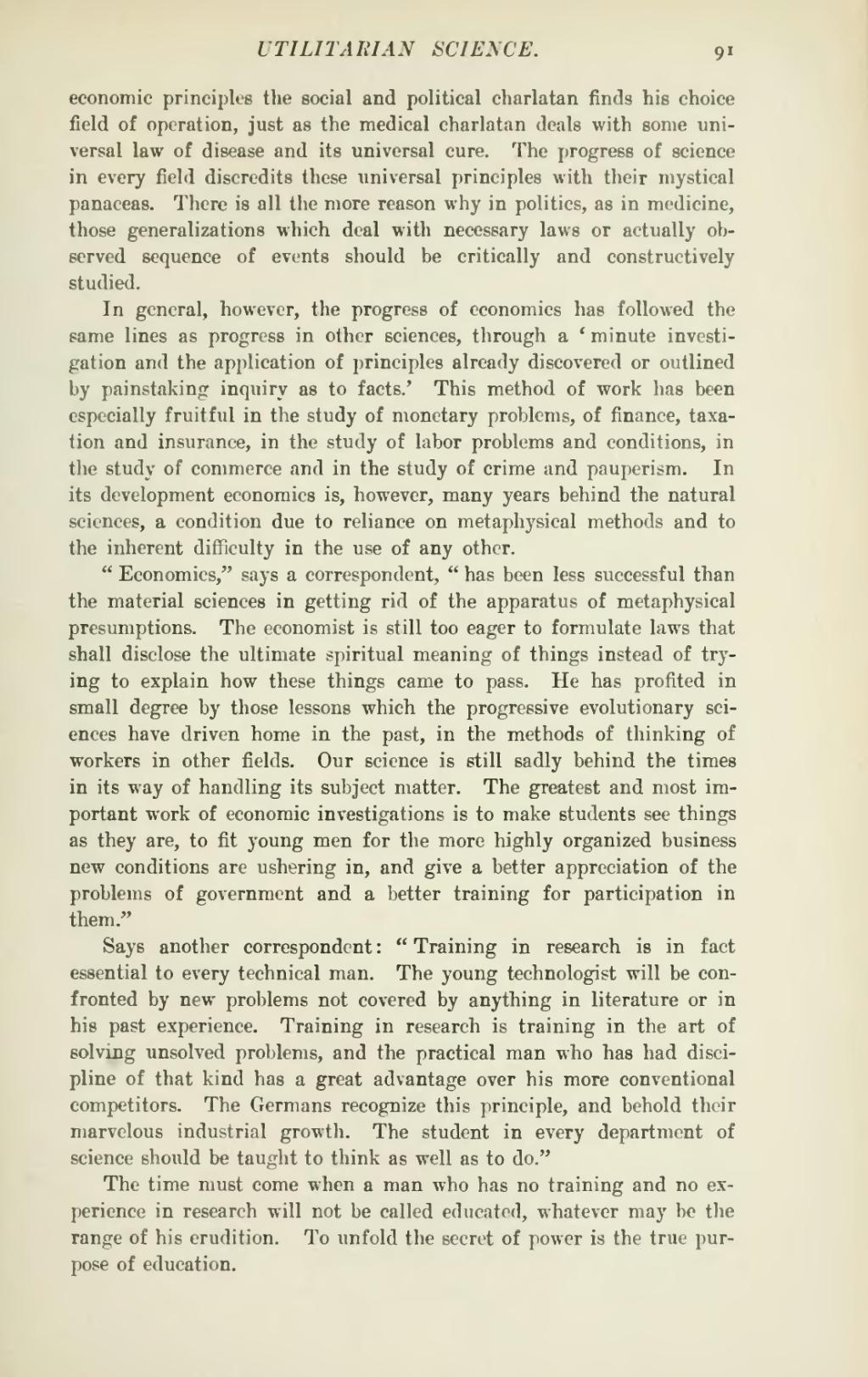economic principles the social and political charlatan finds his choice field of operation, just as the medical charlatan deals with some universal law of disease and its universal cure. The progress of science in every field discredits these universal principles with their mystical panaceas. There is all the more reason why in politics, as in medicine, those generalizations which deal with necessary laws or actually observed sequence of events should be critically and constructively studied.
In general, however, the progress of economics has followed the same lines as progress in other sciences, through a 'minute investigation and the application of principles already discovered or outlined by painstaking inquiry as to facts.' This method of work has been especially fruitful in the study of monetary problems, of finance, taxation and insurance, in the study of labor problems and conditions, in the study of commerce and in the study of crime and pauperism. In its development economics is, however, many years behind the natural sciences, a condition due to reliance on metaphysical methods and to the inherent difficulty in the use of any other.
"Economics," says a correspondent, "has been less successful than the material sciences in getting rid of the apparatus of metaphysical presumptions. The economist is still too eager to formulate laws that shall disclose the ultimate spiritual meaning of things instead of trying to explain how these things came to pass. He has profited in small degree by those lessons which the progressive evolutionary sciences have driven home in the past, in the methods of thinking of workers in other fields. Our science is still sadly behind the times in its way of handling its subject matter. The greatest and most important work of economic investigations is to make students see things as they are, to fit young men for the more highly organized business new conditions are ushering in, and give a better appreciation of the problems of government and a better training for participation in them."
Says another correspondent: "Training in research is in fact essential to every technical man. The young technologist will be confronted by new problems not covered by anything in literature or in his past experience. Training in research is training in the art of solving unsolved problems, and the practical man who has had discipline of that kind has a great advantage over his more conventional competitors. The Germans recognize this principle, and behold their marvelous industrial growth. The student in every department of science should be taught to think as well as to do."
The time must come when a man who has no training and no experience in research will not be called educated, whatever may be the range of his erudition. To unfold the secret of power is the true purpose of education.
